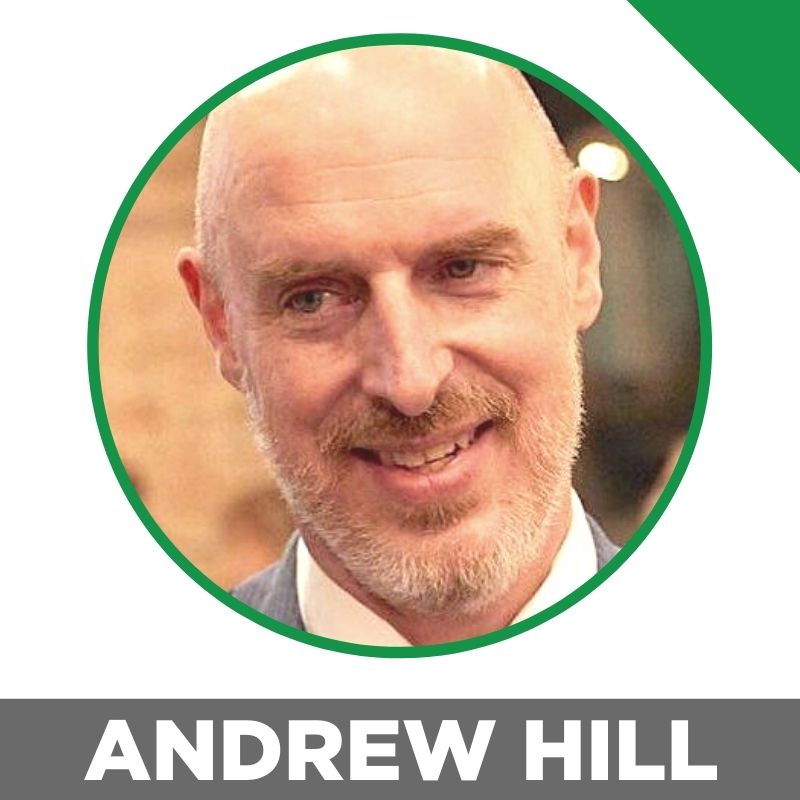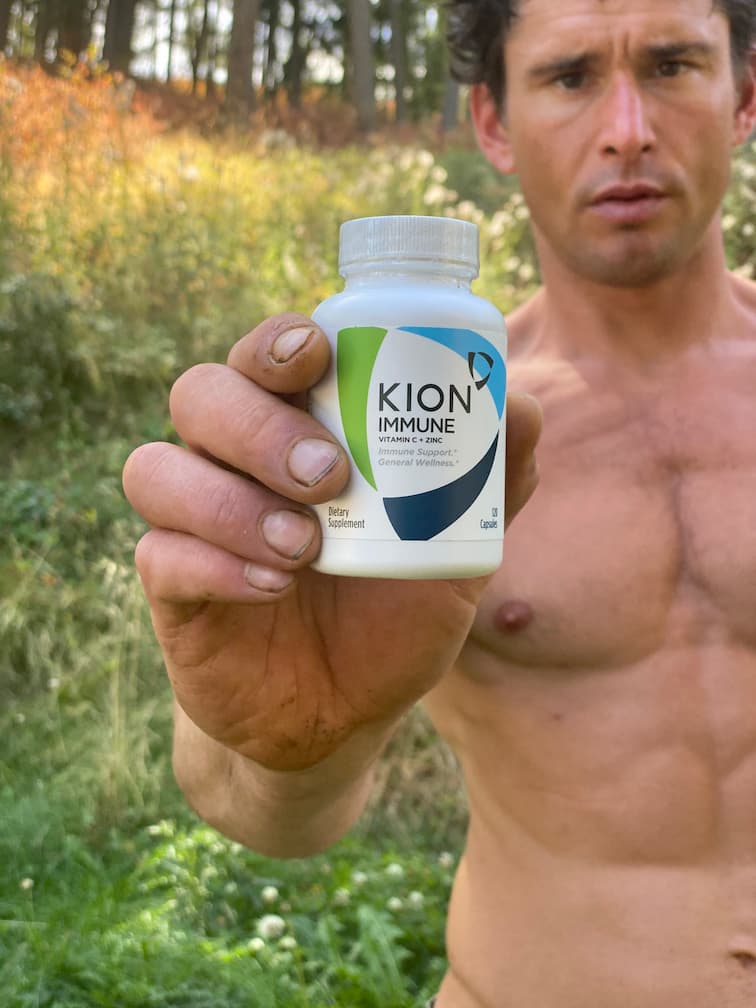January 22, 2021
Welcome to Ben Greenfield's Weekly Roundup and Cool New Discoveries!
Ben Greenfield's discoveries, from the latest news on the fronts of fitness, nutrition, health, wellness, biohacking, and anti-aging research. I also recap my upcoming events and special announcements so you can keep up with giveaways, discounts, and more!
New Discoveries Of The Week: Cool New Things I'm Trying, Books I'm Reading, And More!
Advice From The Top Health Podcasts Of 2020
I recently discovered the handy service “PodcastNotes.org.” It is sooo convenient! If you've seen me write about “done-for-you” summary style services or digests—such as Thinkr, Examine Research Digest (use code BEN to save 15% on Examine Personalized), or Optimize—then you know I'm a huge fan of time-saving, concise summaries of information that would otherwise take me a very long time to digest.
Enter PodcastNotes.org. They have quick, concise, and incredibly helpful summaries of some of the best health, self-improvement, economic, business, and popular podcasts out there—from Joe Rogan to Tim Ferriss to yours truly.
To give you a taste, here's their summary of the top health podcasts of 2020:
Key Takeaways
- Avoid industrial seed oils:
- Canola (also called “Rapeseed”), Corn, Cottonseed Soy, Sunflower, Safflower, Grapeseed, and Rice bran
- Consume healthy oils:
- Olive, avocado, and coconut oil
- How to live longer:
- Intermittent fasting
- Time-restricted eating
- Ketogenic diets
- Exercise
- All of these increase atrophy and decrease inflammation
- How to prevent diabetes:
- Consume bone broth or a collagen supplement:
- Without it, you’re probably not hitting your body’s essential amino acid needs
- ~30% of your entire body’s protein makeup is from collagen: skin, hair, nails, bones, gut lining, arterial walls, and the placenta if a woman is creating a new baby
- Use a sauna! Sauna use (4~7x per week at a temperature of 175 °F for 20 minutes):
- Reduces the risk of cardiovascular disease
- Reduces the risk of stroke
- Reduces the risk of sudden cardiac death
- Improves arterial compliance
- Reduces the risk of Alzheimer’s disease
- Enhances mood
When it Comes to Health, Control What You Can
- Eat right
- Get good sleep
- Manage your stress
- Incorporate physical activity into your day – here’s how:
- Take frequent walks/breaks
- Use a standing desk at work
- If you use public transportation, get off a stop or two before your destination to force yourself to walk a bit
- Take the stairs instead of the elevator
- Only take walking meetings
Ditch Sugar & Processed Foods
- A high-sugar diet:
- Accelerates tooth decay
- Increases visceral body fat
- Increases heart disease risk
- Increases propensity for acne
- Accelerates skin & cellular aging
- Makes you susceptible to mood swings
- Ultra-processed foods are filled with sugar and inflammatory vegetable oils—two things we could all use less of
- An ultra-processed food-heavy diet causes you to over-consume ~500 additional calories every day. That’s right; processed foods are engineered to make you eat MORE.
Avoid The Hateful Eight (Industrial Seed Oils)
- They are 8 industrial seed oils that are widely used but are very harmful to our health
- Canola (also called “Rapeseed”), Corn, Cottonseed Soy, Sunflower, Safflower are mostly found in processed foods and grocery stores
- Grapeseed and Rice bran are mostly found in quality restaurants
- A mnemonic device to remember the hateful eight: CCC, SSS, GR
Healthy Alternatives to the Hateful Eight
- Oils that come from fruits as opposed to seeds are healthy
- Peanut oil is an exception (peanuts are technically seeds) and Dr. Cate Shanahan sometimes recommends it
- Peanuts are “extremely generous” in giving off oil, so they don’t require harsh processing to extract the oil
- Without being processed the oil keeps the antioxidants contained in peanuts
- Antioxidants help to stabilize the oil so that it does not hurt our microbiome
- Without being processed the oil keeps the antioxidants contained in peanuts
- Peanuts are “extremely generous” in giving off oil, so they don’t require harsh processing to extract the oil
- Some peanut oils are still refined and you’d want to avoid them
- When a product is refined it tends to have no taste. So a full peanutty taste can be a good indicator that oil is not refined
- Peanut oil contains PUFAs but not nearly as much as the Hateful Eight
How To Live Longer
- When you do things that increase atrophy, you’ll live longer
- Intermittent fasting
- Time-restricted eating
- Ketogenic diets
- Exercise
- All of these increase atrophy and decrease inflammation
How To Prevent Diabetes
- Limit your starch and sugar intake
- Gluten-free cakes and cookies are still cakes and cookies
- Eat good fats: avocado, nuts, etc.
- Eat a ton of vegetables
- Avoid starchy vegetables like potatoes
- “You cannot exercise your way out of a bad diet” – Dr. Mark Hyman
- If you drink one 20 oz. soda, you need to run 5 miles
Get Your Vitamin C
- Vitamin C serves as an antioxidant and has benefits beyond its ability to support immune function and prevent or shorten the common cold
- It reduces the risk of a wide array of viral infections, ranging in severity from chickenpox to HIV
Intravenous (IV) vitamin C has been used in therapeutically in the treatment of sepsis and a supplemental treatment for cancer patients alongside chemotherapy - Vitamin C influences fatty acid oxidation (AKA fat burning), the method which uses fat as an energy source, suggesting that higher vitamin C status might be necessary for fat utilization and weight management
- Vitamin C increases fertility in men due to its antioxidant activity
How to Obtain Vitamin C Through Diet
- Most animals can synthesize their own vitamin C but humans have to get it from their diet or supplements
- Highest amounts in guava, kiwi, bell peppers
- Cooking and exposure to oxygen can ruin vitamin C potency in foods so best to eat vitamin C rich foods raw and immediately after cutting
- Meat is a poor source of vitamin C and a carnivore diet could feasibly lead to a vitamin C deficiency
- Vitamin C dose depends on age, sex, and life stage
- Generally, needs are high in infancy, decrease in childhood, increase again in adulthood
- General guideline for oral vitamin C: 90mg/day for men; 75mg for women
- Tolerable upper intake limit when consuming orally is 2000mg/day
- Some GI issues have been noted above that range but for most people, it’s well-tolerated and safe even above RDA
Get Your Vitamin D
- Vitamin D is a hormone, impacting 5% of human genome and crucial for lung and respiratory functions
- Vitamin D deficiency
- 70% of US population has insufficient Vitamin D levels; 28% are deficient
- Body can generate naturally when exposed to sun daily
- Elderly people are more deficient
- Obese people in US are also more likely to be vitamin D deficient
- What is happening in the body that’s causing people to be vitamin D deficient?
- Genetic polymorphisms: people that have variations in genes that cause them to have less vitamin D
- These people are more likely to die from respiratory infection
- African Americans in the US are 28x more deficient in vitamin D than Caucasians
- How are vitamin D and SARS-CoV-2 related?
- A recent study that looked at COVID-19 patients observed an inverse relationship between vitamin D levels and COVID-19 symptoms: the lower the vitamin D levels, the higher the severity of COVID-19. In Indonesia, almost all patients that died from COVID-19 were vitamin D deficient
- Melanin blocks the ability to produce Vitamin D
- In the US and Europe, African Americans and black people are more likely to die from COVID-19
- Even when adjusting for SES and lifestyle factors, this was still true so something else must be happening
- Genetic polymorphisms: people that have variations in genes that cause them to have less vitamin D
- Vitamin D dosing
- Tolerable upper intake is 4000 IUs per day but it’s best to get vitamin D blood test to measure levels
- Therapeutic studies of vitamin D
- There are clinical studies exploring the role of vitamin D but not many in the US
- Rhonda wants to see nurses and first responders take vitamin D to see the role in prevention but those studies are not being done
Consume More Collagen and Bone Broth
- Without bone broth or a collagen supplement, you’re probably not hitting your body’s essential amino acid needs
- ~30% of your entire body’s protein makeup is from collagen: skin, hair, nails, bones, gut lining, arterial walls, and the placenta if a woman is creating a new baby
- What specific amino acids? – Proline, hydroxyproline, and glycine
- Glycine is critical for many internal processes, including liver detoxification and mitigating inflammation
- “Once you reach the age of 25, your body produces less collagen every single year. By the time you’re in your 50s, your body’s producing 75% less collagen, which is why your skin sags, because now your body has less collagen and it’s producing less collagen.” – Dr. Josh Axe
- “I do think collagen is one of those things – foods, supplements, whatever you want to call it – that people should be taking every day. In terms of what people have seen the biggest results from of all the supplements I’ve recommended over the years, I would put collagen number one.” – Dr. Josh Axe
Spend Time In Saunas
- Sauna use (4-7x per week at a temperature of 175 °F for 20 minutes):
- Reduces the risk of cardiovascular disease
- Reduces the risk of stroke
- Reduces the risk of sudden cardiac death
- Improves arterial compliance
- Reduces the risk of Alzheimer’s disease
- Enhances mood
- Saunas mimic moderate physical activity
- Heart rate variability improves, blood pressure goes down, cardiovascular health improves, all-cause mortality decreases
- Sauna use also improves immune system and makes you more resilient against infection
- Brain-derived neurotropic factors (BDNF) increases with exercise and heat stress (sauna)
- BDNF regulates neuroplasticity, the brain’s ability to adapt to changing environment
- The positive benefits of physical activity on the cardiovascular system were enhanced when sauna was added
- Association between sauna bathing and fatal cardiovascular and all-cause mortality events by Laukkanen T, Khan H, Zacardi F, Laukkanen JA
- Cardiovascular and other health benefits of sauna bathing: A review of the evidence Laukkanen JA, Laukkanen T, Kunutsor S
- Heat shock protein, sauna use, and immune system
- Sauna use increases heat shock proteins which prevent muscle atrophy, neurodegenerative genes, and have anti-depressant effects
- People who sat in 160-degree sauna for 30 minutes had a 60% increase in heat shock protein compared to baseline
- Large Harvard study being done to assess whether hot yoga increases heat shock protein
- Heat shock protein have antiviral activity against influenza A
- Infrared vs standard dry sauna vs hot bath
- Regular sauna is heating ambient air which in turn raises core body temperature
- Infrared saunas are directly heating body without heating the ambient air – for example, in a heating tent or blanket
- We know more about the effects of dry sauna
- For people who don’t have access to sauna, a hot bath is a good modality for heat shock protein
- Future direction of therapeutic uses of saunas
- Studies being done to assess whether sauna can have anti-depressant effect on depressed patients
- Saunas could also provide an avenue for giving sedentary and disabled people the benefits of physical activity without exercising
Stop Lying to Yourself, Being Fat is Unhealthy
- “Excess body fat is pro-inflammatory, and inflammation is NOT a good thing.” – David Perlmutter
- Body fat profoundly influences the production of ghrelin, the hunger hormone
- In other words, the more body fat you have, the greater your appetite
- As Gary Taubes says: “We don’t get fat because we overeat, we overeat because we’re getting fat”
- Also, the higher your body fat percentage, the worse your sleep quality – how so?
- Higher body fat increases risk for sleep apnea
- Given everything discussed above, a higher body fat percentage drives more amygdala-based (short-term-reward-minded) decisions surrounding sleep choices (like choosing to stay up late bingeing Netflix)
Indisputable Health Tips
- Move throughout the day as much as possible
- Frequently expose yourself to sunlight
- (The biochemical processes from photon interactions heal the body, strengthen bones, produce testosterone, and improve mood)
- Every day, make an effort to walk in nature barefoot
- (This helps balance your body’s electronegativity)
- Expose your body to both heat and cold
- “We know from Finnish longevity studies, for example, that sweating and being hot on a frequent basis is very good for the body. We also know that cold thermogenesis, cryotherapy, and cold showers—things like that—are wonderful for weight stability, nitric oxide production, blood flow, etc.” – Ben Greenfield
- Drink clean water
- Ensure your body has enough high-quality minerals
More Plants = Less Menstrual Cramping
- Women with high levels of estrogen develop a thicker uterine lining. As the lining disintegrates during menstrual flow, it releases prostaglandins that cause cramping.
- The thicker the lining, the more the painful menstrual cramps
- When women don’t consume enough fiber, estrogen enters back into circulation, causing blood levels to elevate
- Neal once recommended a plant-based diet to a woman experiencing severe menstrual pain. After following the diet for a brief period, all menstrual cramps disappeared.
- Neal once conducted a study with several women who experienced moderate to severe menstrual cramps, putting half of them on a vegan diet. The results?
- The vegan group showed reductions in PMS symptoms, bloating, and mood fluctuations
- Takeaway: A high-fiber diet flushes away excess estrogen, resulting in less menstrual cramping
- Diets high in animal fat and vegetable oils increase estrogen
Sleeping Tips
- If you’re having trouble falling asleep at night, try reducing your caffeine intake
- People eliminate caffeine from their bodies at different rates (i.e., caffeine has a different half-life for different people – for most, it’s 6 hours)
- If caffeine is still floating around in your system come 2 AM (and given caffeine’s average half-life of 6 hours, any consumed after 2 PM will make this so) it’ll definitely be affecting the quality of your sleep
- People eliminate caffeine from their bodies at different rates (i.e., caffeine has a different half-life for different people – for most, it’s 6 hours)
- Another sleep tip: Before laying down, stretch out your arms and let out a huge yawn, just like a dog or cat would (Neal recommends doing this four times)
- A high-carbohydrate meal allows serotonin to become active in the brain and improve sleep
- Tip: If you’re having trouble falling asleep, eat a slice of bread
Anyways, some of the notes are free, but the *best* stuff (like what I've given you a glimpse of above) is behind a paywall, which is pretty inexpensive (10 bucks a month, plus you save 10% with code BEN) considering how much time this saves you from listening to “too many podcasts” and how easy it is to have all your podcasts summarized for a quick review later. Check out the PodcastNotes website here and use code BEN to save 10% on any of their premium membership options.
Podcasts I Recorded This Week:
This episode was brought to you by Beekeeper's Naturals (code BEN) Paleo Valley Beef Sticks (Receive a 15% discount on your order when you use my link), and Clearlight Saunas (mention BEN GREENFIELD for a discount).
 Advanced Smart Drugs & Nootropics You’ve Never Heard Of, Rare Japanese Seaweed For Sleep Enhancement, The Most Powerful Form Of Vitamin B1 That Exists & Much More!
Advanced Smart Drugs & Nootropics You’ve Never Heard Of, Rare Japanese Seaweed For Sleep Enhancement, The Most Powerful Form Of Vitamin B1 That Exists & Much More!
This episode was brought to you by Kion Aminos (code BEN10), Joovv (code BEN), Lucy Nicotine Gum (code BEN20), and Organifi Gold Chocolate (code BENG20).
Ben Greenfield's VIP Text Club: To receive exclusive texts from Ben Greenfield, text the word “FITNESS” to 411247 (within the U.S. only).
Articles I Published This Week:
My full article feed and all past archives of my articles are here if you want to check out past articles.
Special Announcements:
::: Save $45 On Ra Optics Day/Night Lenses Bundle :::
There's no question: Harmful blue light from modern LEDs, fluorescent lights, and screens can cause a myriad of health issues ranging from increased production of stress hormones like cortisol to the suppression of melatonin.
 This leads to poor sleep and mitochondrial function, slowed metabolism, weight gain, increased rate of chronic disease, low energy, and decreased overall health.
This leads to poor sleep and mitochondrial function, slowed metabolism, weight gain, increased rate of chronic disease, low energy, and decreased overall health.
So, what are day/night lenses, and why do you need both? Day lenses (which you can see me wearing at the top of this post), which are to be worn—you guessed it—during the day, can increase your energy and reduce eye strain. Day lenses block 95% of blue light because you don't want to eliminate all exposure during the day. Night lenses, on the other hand, block 100% of harmful blue and green light and help to improve your sleep patterns and reset your circadian rhythm.
I've tried many blue blockers throughout the years, but the brand I've landed on for functionality (and style) is Ra Optics. Right now, you can save $45 off your order when you click here and pick up a pair of Day and Night glasses together!
Featured Product: Kion Immune
I don't need to tell you how important having a strong immune system is right now. Lucky for you, my company Kion and I recently formulated and blended two of the most studied nutrients for immune health—Vitamin C and Zinc.
It may sound like a super simple formula, but these two nutrients are essential when it comes to proper immune system function, are safe for long-term use, science-backed, and very affordable.
We put your Vitamin C and Zinc in the perfect ratio so there’s no guesswork on dosage (I’ve been taking 2 caps each morning at home with my morning baking soda in water, then 6 caps when I travel). When taken regularly, Kion Immune can support a healthy immune system and promote proper function of immune cells.*
I’m obviously super excited about this new basic, but powerful, blend. Click here to take an important step in building a strong immune system, and use code BEN10 to save 10% on your first order. Combined with a healthy lifestyle, good sleep, and proper nutrition, Kion Immune can help you stay vibrant and healthy year-round!
*These statements have not been evaluated by the Food and Drug Administration. This product is not intended to diagnose, treat, cure, or prevent any disease.
This Week's Most Popular Instagram Post
This Week's Most Popular Tweet:
My Most Popular Facebook Post This Week:
Leave your comments and any news or discoveries that you think I missed below!
Cheers,
Ben







is sesame seed oil okay to use?